Best AI Tools for Lead Scoring and Customer Targeting in 2025
February 21, 2025


In today’s fast-paced digital world, businesses constantly seek innovative ways to optimize their sales and marketing efforts. Artificial Intelligence (AI) has emerged as a powerful tool that can revolutionize lead scoring and customer targeting strategies. By leveraging advanced algorithms and machine learning techniques, AI enables businesses to identify high-quality leads, personalize marketing messages, and drive revenue growth. Additionally, with the help of Lead Generation Software, businesses can automate their lead generation process and focus on building relationships with potential customers.
AI lead scoring and customer targeting utilize AI algorithms to analyze vast amounts of data to assess the potential value of leads and identify ideal customer segments. This data can include demographic information, website behavior, email interactions, social media activity, and purchase history.
AI-powered lead scoring and customer targeting leverage sophisticated algorithms and machine learning techniques to analyze vast data and extract valuable insights. This data-driven approach empowers businesses to make informed decisions and optimize their marketing and sales strategies.
AI systems gather data from multiple sources, including CRM systems, marketing automation platforms, website analytics, and social media platforms.
The collected data is cleaned, standardized, and transformed into a suitable format for analysis.
AI algorithms identify key features that correlate with lead quality, such as demographic information, website behavior, email engagement, and social media activity.
New features may be created by combining or transforming existing ones to enhance predictive power.
Various machine learning algorithms, such as logistic regression, decision trees, and neural networks, are employed to train models on historical data.
The models are iteratively refined through techniques like hyperparameter tuning and cross-validation to achieve optimal performance.
Based on input features, trained models predict the probability of a lead converting into a customer.
Each lead is assigned a score reflecting its likelihood of conversion, helping sales and marketing teams prioritize their efforts.
AI algorithms group customers with similar characteristics, such as demographics, preferences, and behaviors, into distinct segments.
Detailed profiles are created for each segment, highlighting their unique needs and preferences.
AI-powered tools analyze customer data to deliver personalized marketing messages and offers through various channels, including email, SMS, and social media.
Content is dynamically tailored to individual customers based on their interests and past interactions.
AI algorithms analyze historical data to predict future customer behavior, enabling businesses to anticipate needs and preferences proactively.
Timely and relevant outreach campaigns can be initiated to nurture customer relationships and drive sales.
By combining these techniques, AI-powered lead scoring and customer targeting empower businesses to:
Focus on high-potential leads to maximize sales efforts.
Deliver tailored experiences to specific customer segments.
Allocate resources effectively and achieve better ROI.
Prioritize leads and streamline the sales process.
Build long-lasting relationships through personalized interactions.
Let’s delve deeper into the key benefits you’ve outlined:
AI algorithms can accurately assess a lead’s potential value, helping sales teams prioritize their efforts.
Businesses can initiate timely follow-up and nurture relationships effectively by identifying high-quality leads early in the sales funnel.
Focusing on qualified leads can significantly shorten the sales cycle and increase revenue.
AI enables businesses to create highly targeted marketing campaigns that resonate with customer preferences.
Personalized messages and offers drive higher engagement rates, improving customer satisfaction.
Tailored experiences foster loyalty and advocacy, strengthening brand reputation.
AI can automate the lead qualification process, allowing sales reps to focus on closing deals.
By prioritizing high-quality leads, sales teams can streamline their pipeline and improve productivity.
Faster lead qualification and prioritization can lead to shorter sales cycles and increased revenue.
AI-powered personalization delivers content that aligns with individual customer interests and needs.
AI can trigger timely interactions, such as personalized email campaigns or targeted offers.
By providing a superior customer experience, businesses can build strong customer relationships and drive repeat business.
AI-powered analytics provide actionable insights into customer behavior, market trends, and sales performance.
Data-driven decisions can lead to more effective marketing campaigns and sales strategies.
By analyzing data, businesses can continuously optimize their processes and improve results.
Remove duplicates, inconsistencies, and errors to ensure data accuracy.
Enhance data with additional relevant information, such as demographic data, firmographic data, or social media insights.
Establish clear data governance policies to maintain data quality and security.
Define clear and measurable objectives, such as increasing lead conversion rates or improving customer retention.
Select KPIs that align with business goals, such as lead score improvement, customer lifetime value, or marketing ROI.
Monitor key performance indicators regularly to track progress and identify areas for improvement.
Regularly retrain AI models with new data to ensure their accuracy and relevance.
Incorporate feedback from sales and marketing teams to refine AI models and improve their performance.
Continuously test new AI techniques and strategies to identify opportunities for innovation.
Adhere to data privacy regulations, such as GDPR and CCPA, to protect customer data.
Implement measures to mitigate bias in AI algorithms, ensuring fair and equitable treatment of all customers.
Be transparent about the use of AI and its impact on decision-making processes.
Involve sales, marketing, and IT teams in the AI initiative to foster a sense of shared ownership.
Create cross-functional teams to collaborate on AI projects and ensure alignment.
Establish effective communication channels to facilitate collaboration and knowledge sharing.

HubSpot CRM uses AI to automate lead scoring and tracking customer interactions to provide more personalized engagement.
User-friendly; integrates well with other tools; free CRM options.
Advanced features are costly.
Free for basic; premium plans start at $50/month.
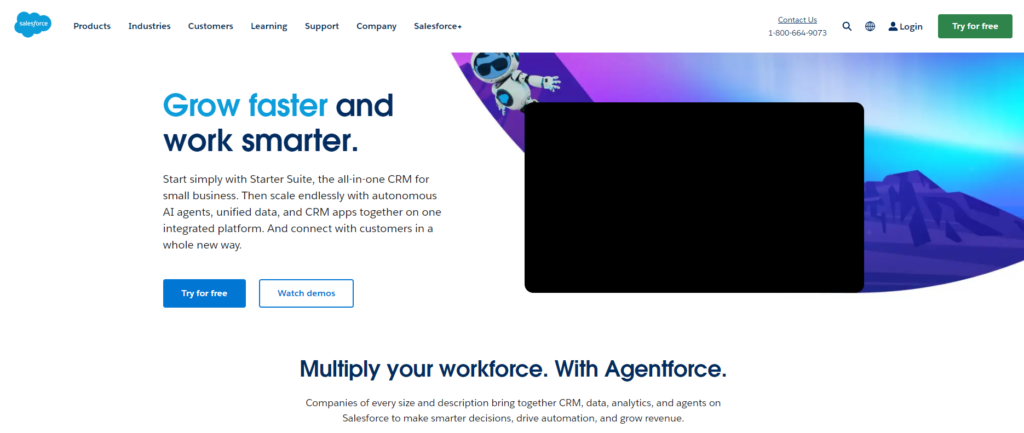
AI-powered tool for lead scoring and personalized customer engagement within Salesforce CRM.
Highly customizable; strong analytics.
Expensive; steep learning curve.
Starting at $25/user/month.
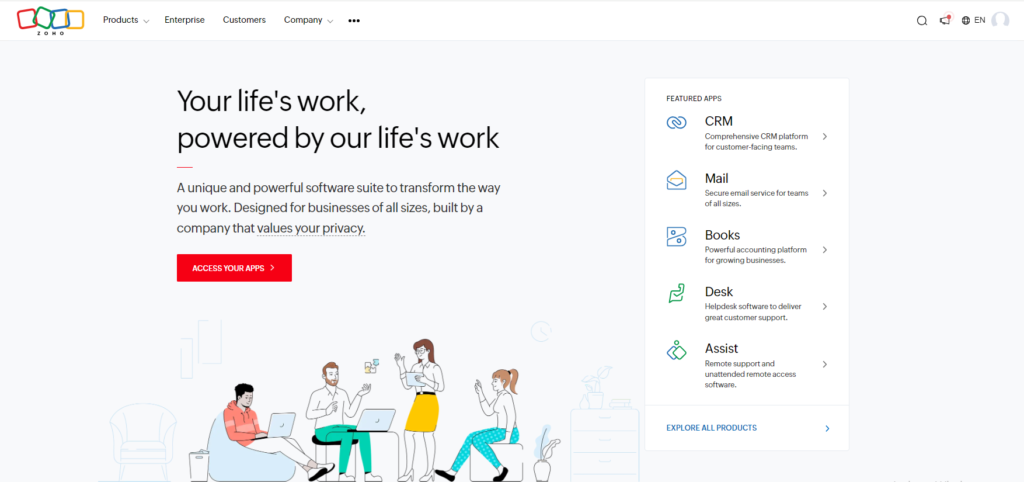
AI-based lead scoring through Zia provides insights and targeting suggestions.
Affordable, versatile integrations.
Limited support for lower-tier users.
Free plan available; paid plans from $12/user/month.
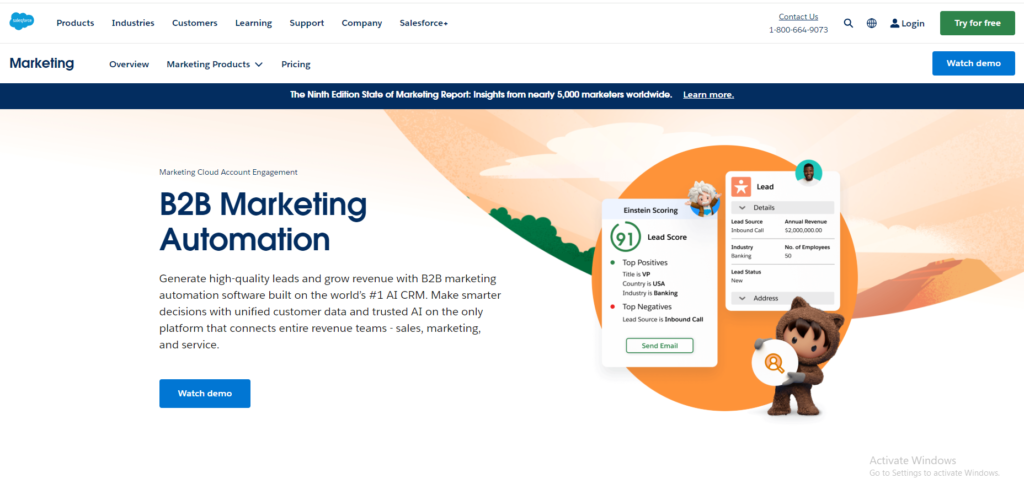
A B2B marketing automation tool using AI for lead scoring and nurturing.
Seamless Salesforce integration; robust features.
Expensive; best suited for B2B.
Starting at $1,250/month.
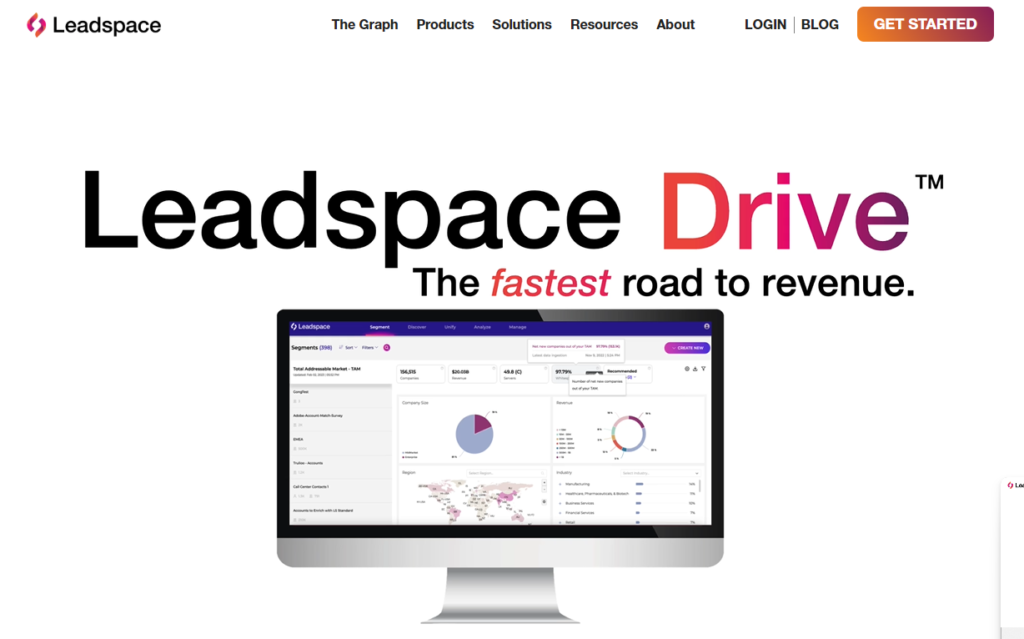
AI-driven B2B customer data platform for lead scoring and persona modeling.
Great for B2B; extensive data coverage.
It may not suit small businesses.
Contact for pricing.
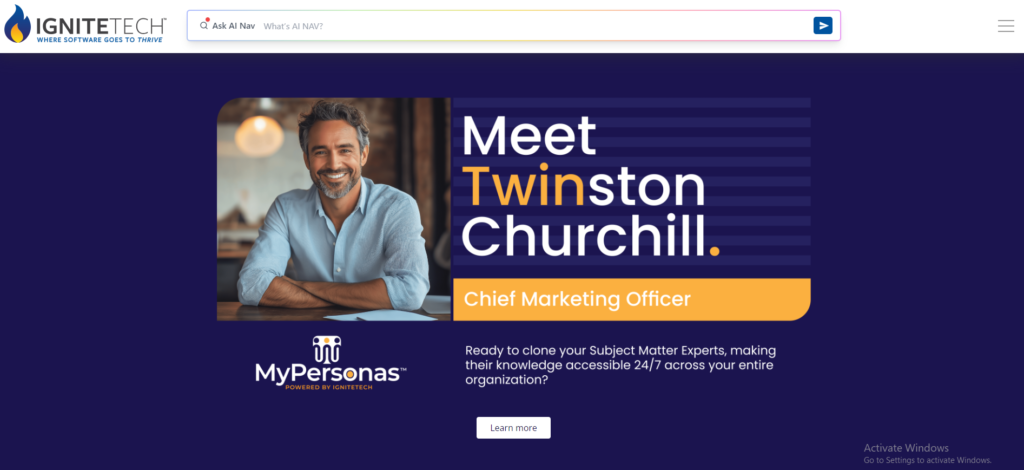
Predictive analytics for lead scoring, powered by AI to help sales prioritize leads.
Accurate predictive insights; easy integration.
Primarily for B2B.
Contact for pricing.
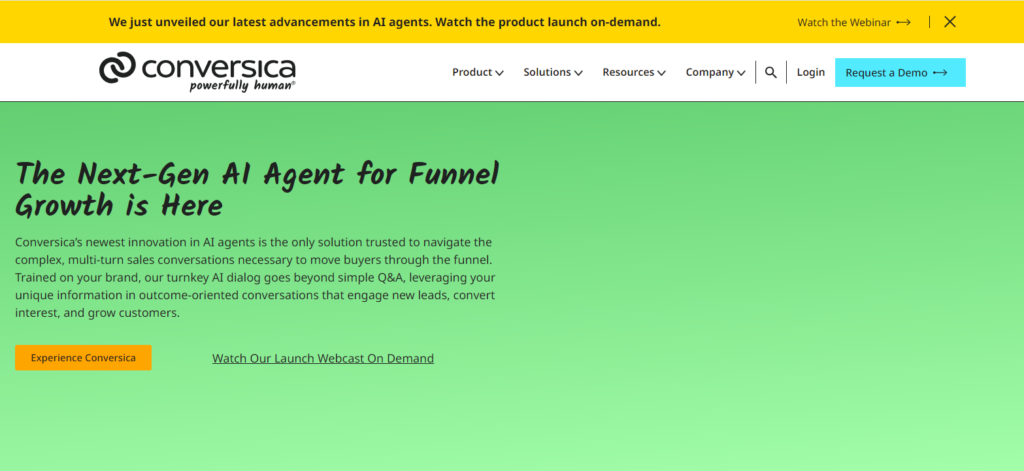
AI-powered virtual assistant that automates lead follow-up and scoring.
Reduces response time; high response rate.
It can feel impersonal and costly for small teams.
Custom pricing.
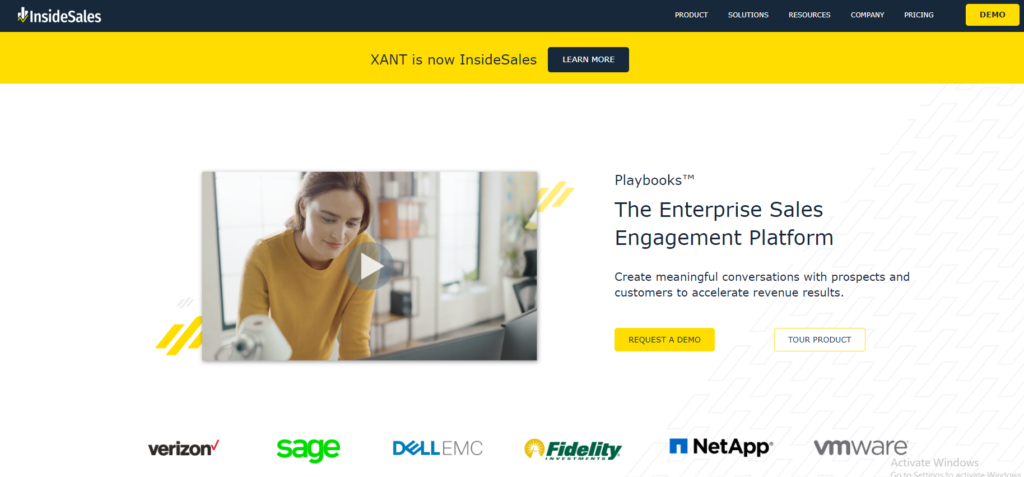
AI-driven sales engagement platform focusing on lead prioritization and scoring.
Excellent for sales teams; strong predictive insights.
Requires training for optimal use.
Contact for pricing.
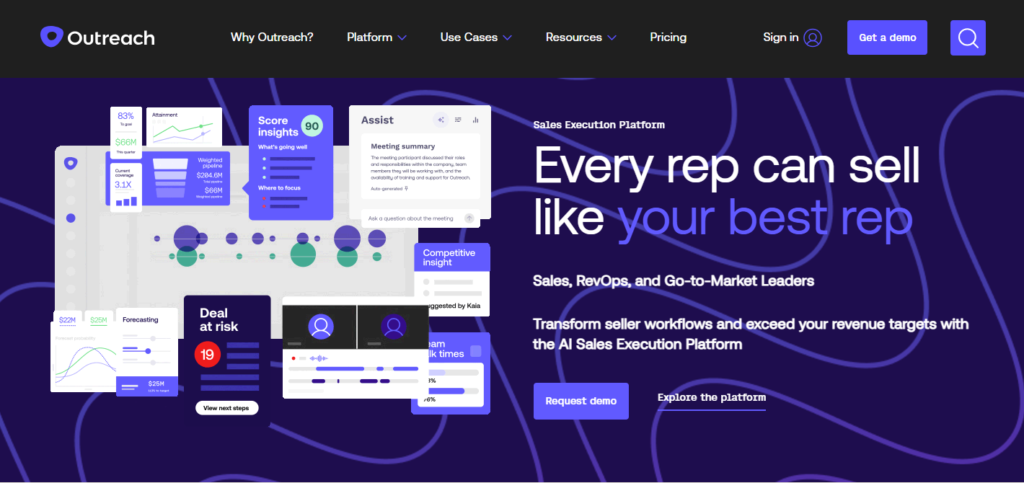
Uses AI to track and score leads, helping sales teams manage and optimize outreach.
Integrates with CRM; effective sales automation.
Expensive and complex for beginners.
Contact for pricing.
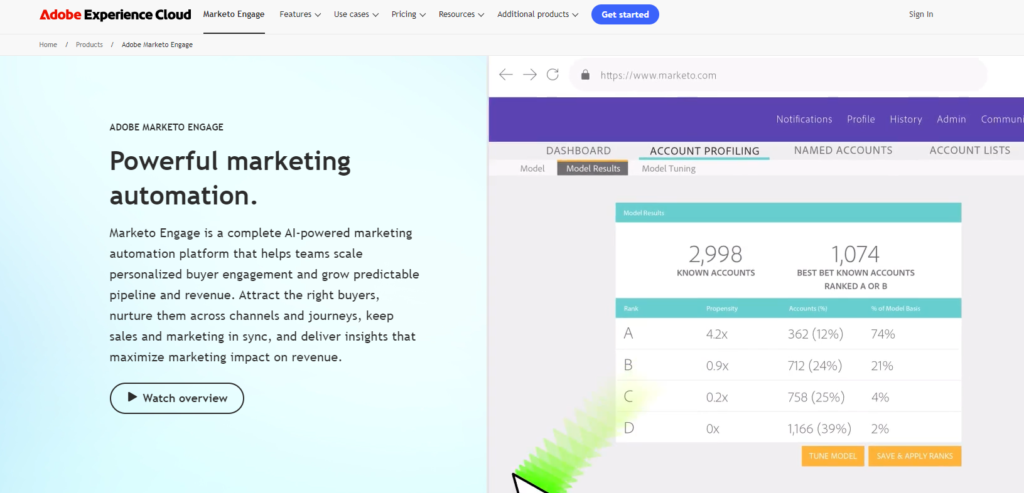
Marketing automation with AI-powered lead scoring for customer targeting.
Feature-rich; strong analytics.
It’s pricey for small businesses.
Custom pricing based on needs.
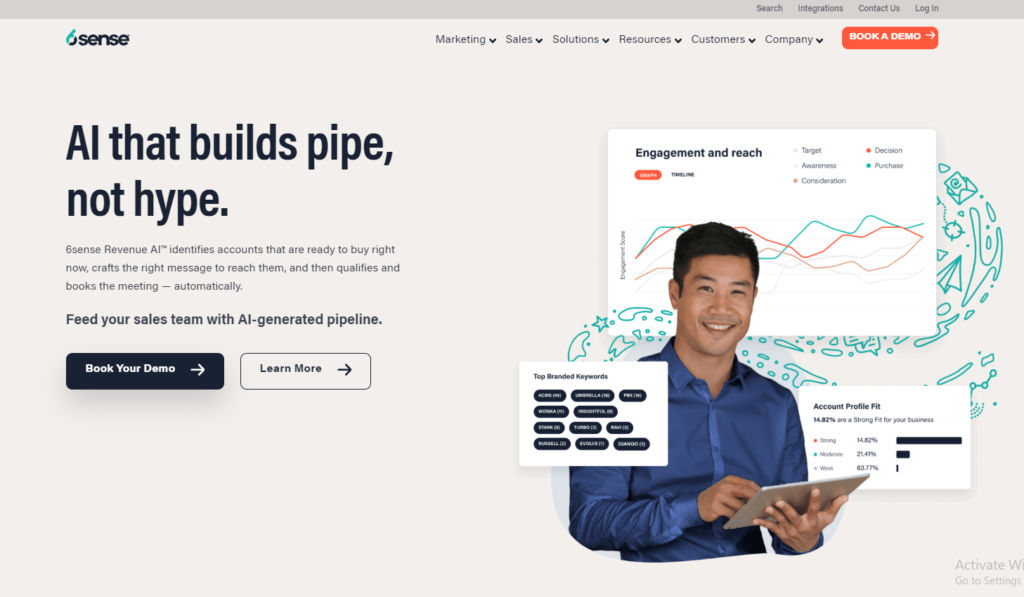
AI-driven intent data for B2B, enabling personalized lead targeting.
Excellent intent data; detailed insights.
Expensive; B2B focus.
Contact for pricing.
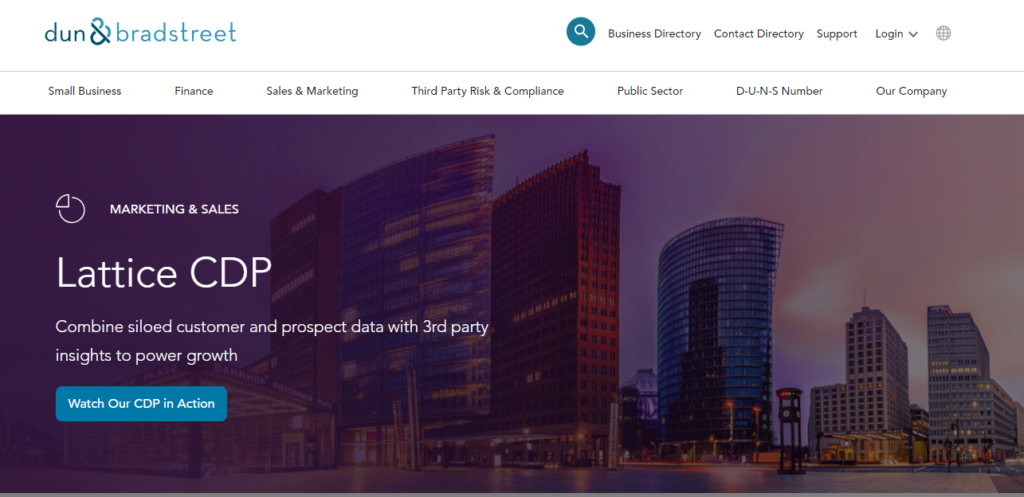
Predictive analytics for lead scoring and account targeting.
Strong predictive modeling; easy integration.
Limited for B2C applications.
Contact for pricing.
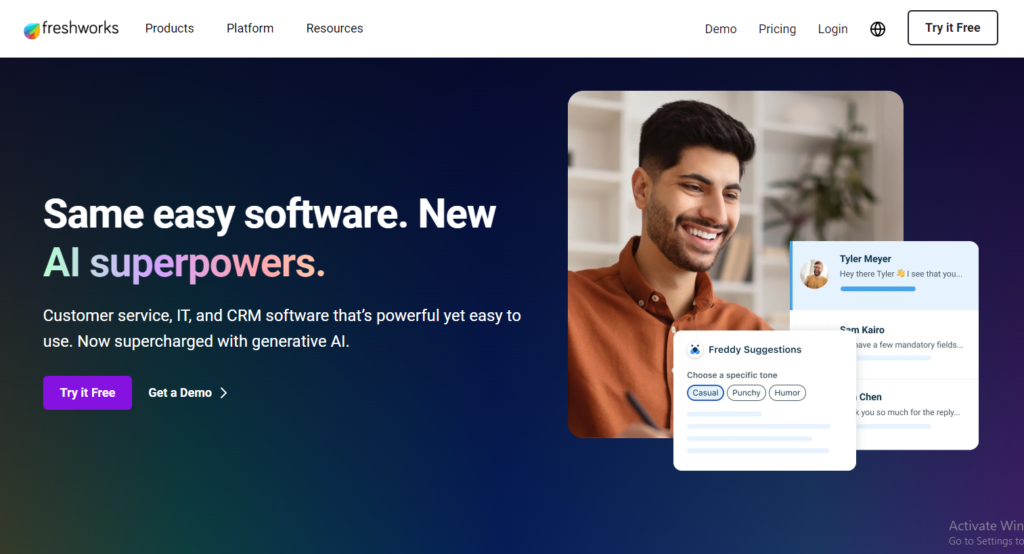
CRM platform with AI-driven lead scoring and contact management.
Affordable; simple UI.
Limited automation in lower-tier plans.
Starts at $15/user/month.
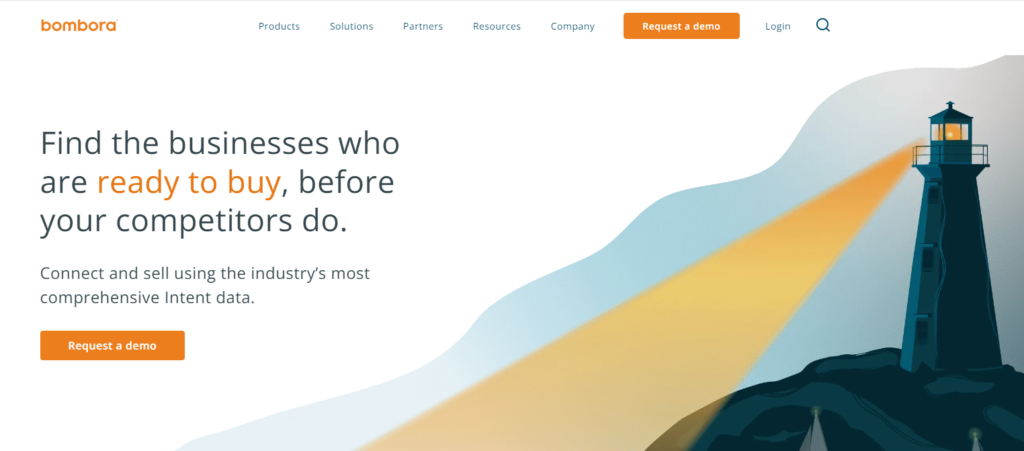
B2B intent data provider for lead scoring based on buying intent.
Valuable intent data; integrates with CRM.
Best for B2B.
Custom pricing.
Email and marketing automation with lead scoring powered by AI.
Affordable; good for SMBs.
Limited CRM features.
Starting at $15/month.
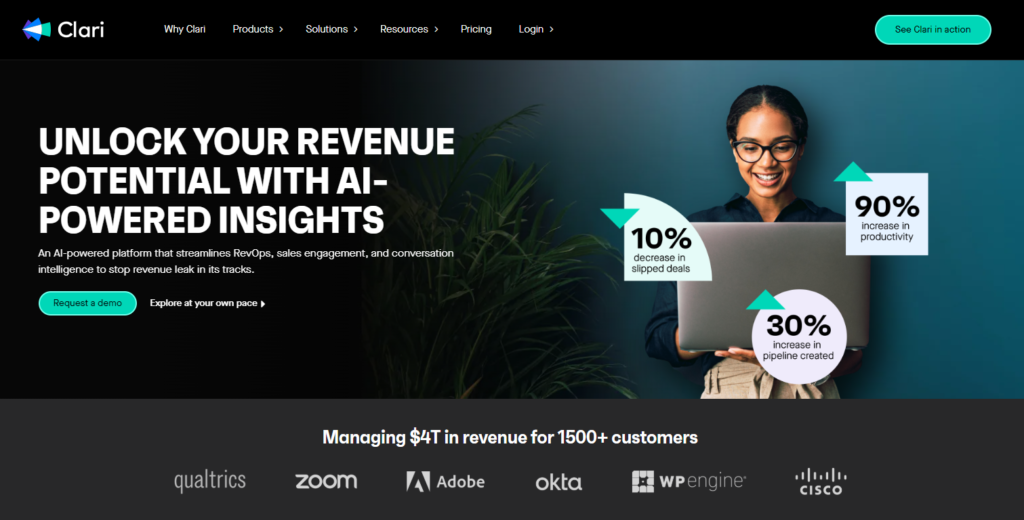
AI tool for sales forecasting and lead scoring.
Effective analytics; real-time insights.
Pricey; better for larger teams.
Contact for pricing.
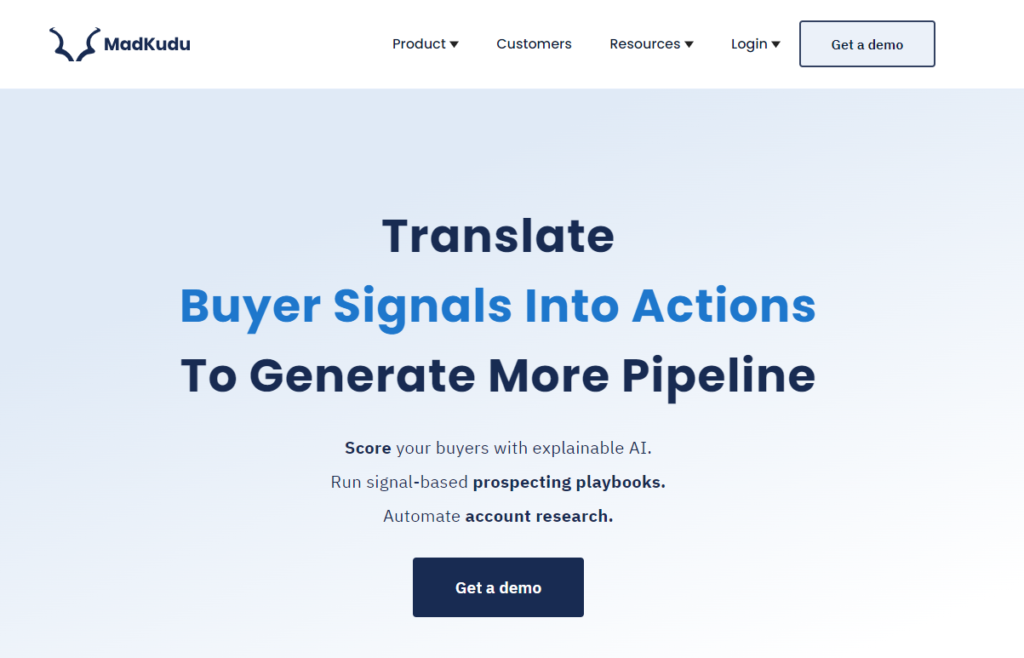
AI-based predictive lead scoring for B2B.
Great for B2B; strong insights.
Limited features for B2C.
Custom pricing.
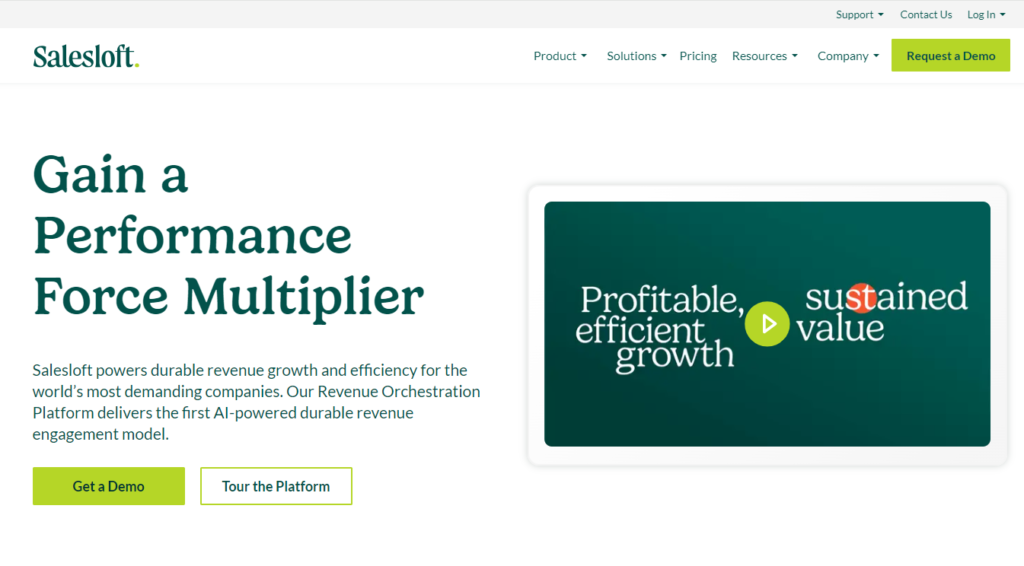
Sales engagement platform using AI to improve lead scoring.
Easy CRM integration; insightful analytics.
Requires user training.
Contact for pricing.
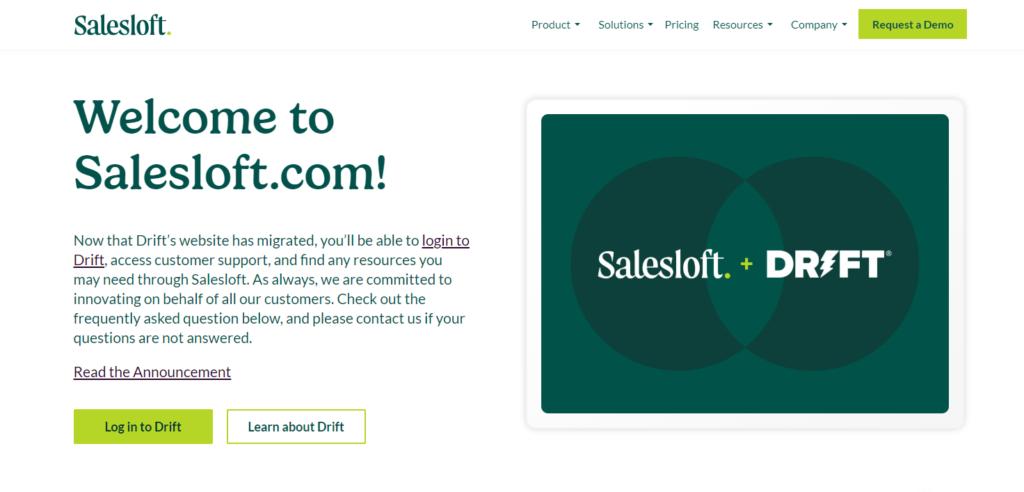
Conversational marketing tool with AI for lead scoring and targeting.
Excellent for lead generation; easy to use.
Best suited for chat-based marketing.
Contact for pricing.
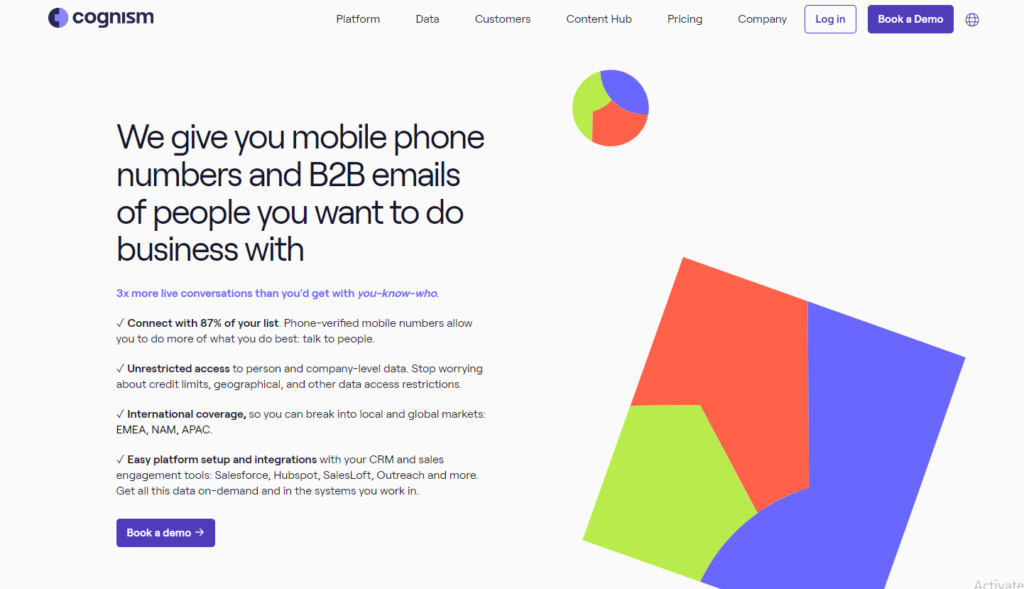
B2B lead generation platform using AI for lead scoring and intent targeting.
Excellent data accuracy; ideal for B2B.
Limited B2C application.
Custom pricing.
The risk of data breaches can expose sensitive customer information to unauthorized access.
Adhering to strict data privacy regulations can be complex and costly.
Implementing robust data security measures, such as encryption and access controls, is essential.
If AI models are trained on biased data, they may perpetuate discriminatory practices.
Ensuring fairness and equity in AI algorithms is crucial to avoid negative consequences.
Implementing techniques to detect and mitigate bias in AI models is essential.
Implementing AI solutions requires specialized technical skills and expertise.
Investing in the necessary infrastructure, such as hardware and software, can be costly.
Maintaining and updating AI models requires ongoing effort and resources.
Employees may resist change and fear AI’s impact on their jobs.
Organizational culture may hinder the adoption of new technologies.
Implementing effective change management strategies can help overcome resistance and facilitate adoption.
Advanced predictive models will forecast future customer behavior, such as purchase likelihood, churn risk, and product preferences.
Businesses can proactively reach customers with personalized offers and recommendations based on predicted needs.
Predictive analytics can help optimize marketing campaigns by identifying the most promising target audiences.
AI-powered systems can deliver personalized experiences in real-time, adapting to changing customer preferences.
Content can be dynamically generated and tailored to customers based on browsing history and preferences.
AI algorithms can recommend products and services that are highly relevant to each customer.
AI can automate the lead qualification process, allowing sales reps to focus on high-value leads.
AI-powered chatbots can handle routine customer inquiries and provide 24/7 support.
AI can predict sales forecasts based on historical data and market trends.
AI algorithms must be designed and implemented to avoid bias and ensure fairness.
AI systems should be transparent and explainable, allowing users to understand how decisions are made.
Businesses must adopt responsible AI practices to minimize negative impacts and maximize positive outcomes.
AI lead scoring and customer targeting are powerful tools to help businesses achieve significant growth and success. By leveraging AI’s capabilities, businesses can improve lead quality, enhance customer segmentation, increase sales efficiency, and deliver exceptional customer experiences. However, it is essential to address the challenges associated with AI implementation and ensure that ethical considerations are prioritized. By following best practices and staying informed about future trends, businesses can harness the full potential of AI to drive sustainable growth.
